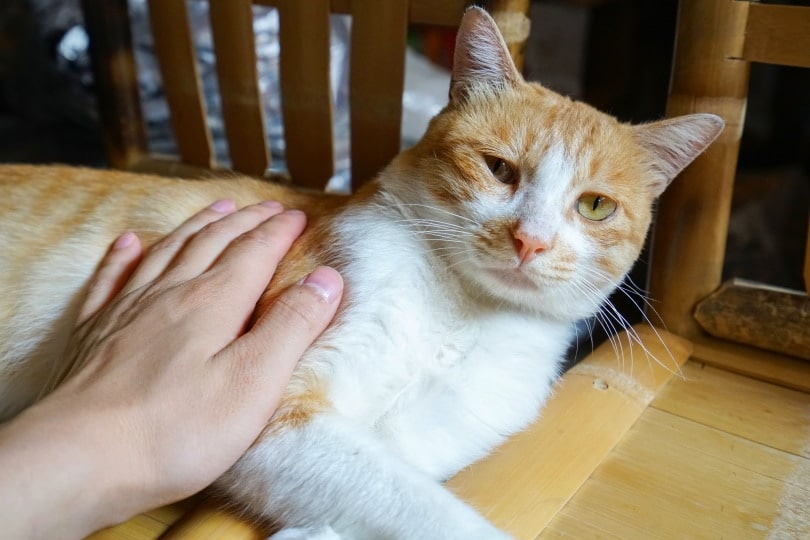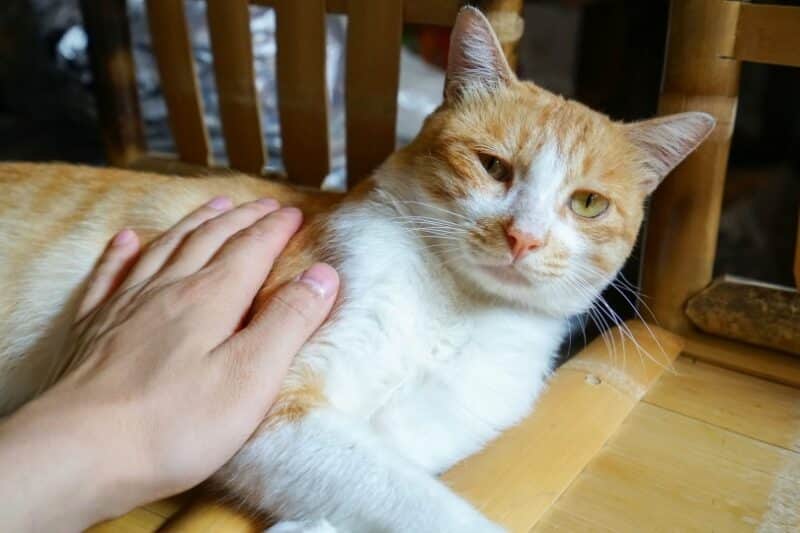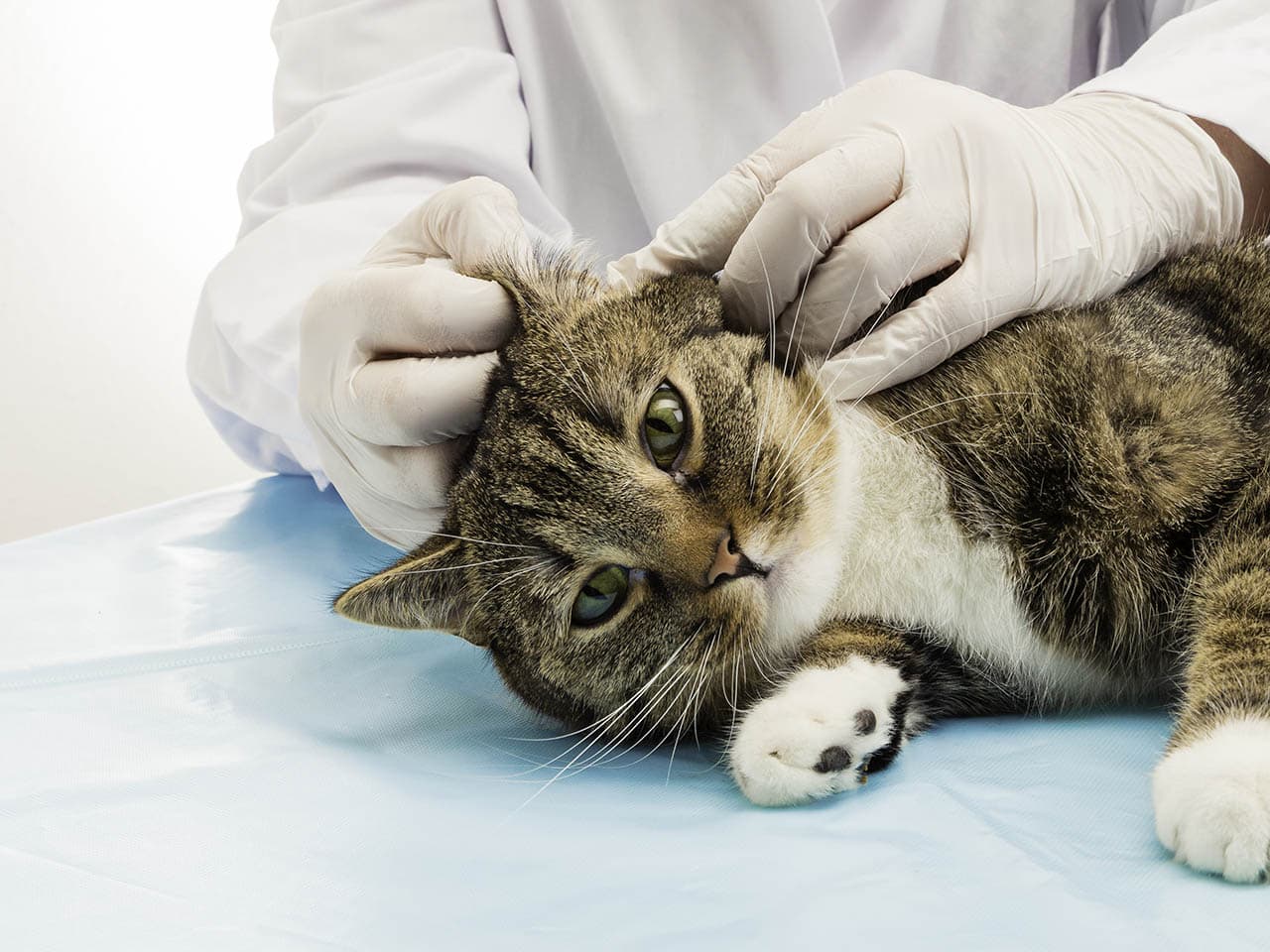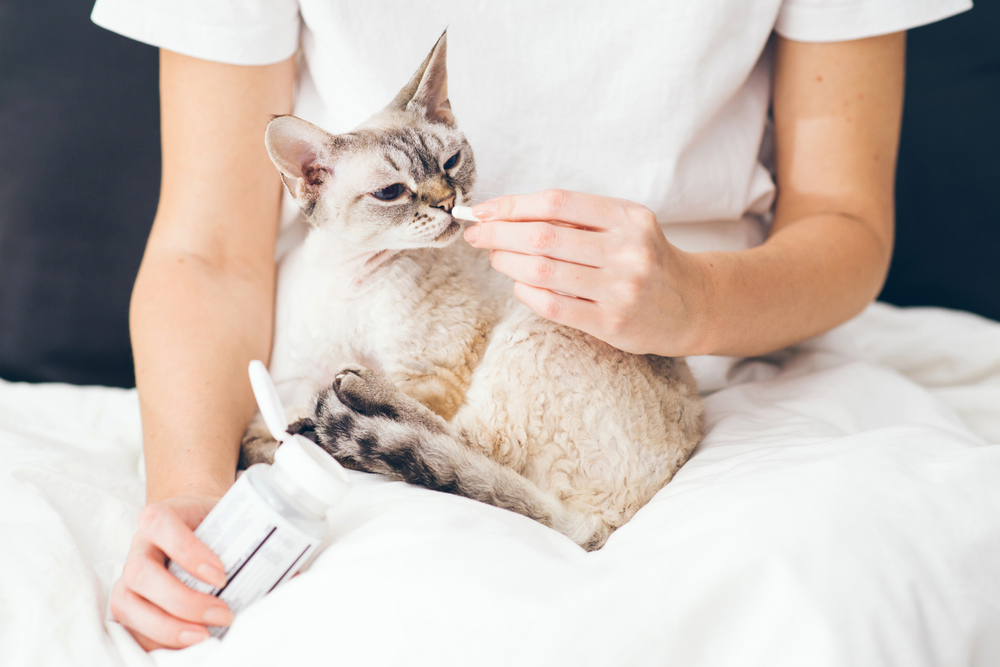Cats are fantastic creatures and great companions. They purr, provide us with hours of entertaining internet videos, add warmth to our homes, and generally sleep. A lot.
But just like some people, cats can have tough lives. Sometimes, this means seeing the not-so-friendly aspect of humans, as well, including intentional or unintentional abuse.
Many abused cats are strays, or ferals, or those that end up at shelters. Many of these cats go on to make fantastic cat additions to our homes. Remember, just like people, your past doesn’t define who you are in the present!
Read on to learn about signs of stress and trauma that can result from abuse in cats and ways to help your cat overcome them. Cats may remember past abuse, but that doesn’t mean it needs to be their present too!
Can Cats Recall Abuse?
The answer is: no one really knows. That said, many people comment to vets that “their cat doesn’t like men”, or that “their cat was abused and doesn’t trust anyone other than me”. Now, these comments are often anecdotal and are based more on observations than on facts. If cats could talk, this would be a much easier topic to learn about!
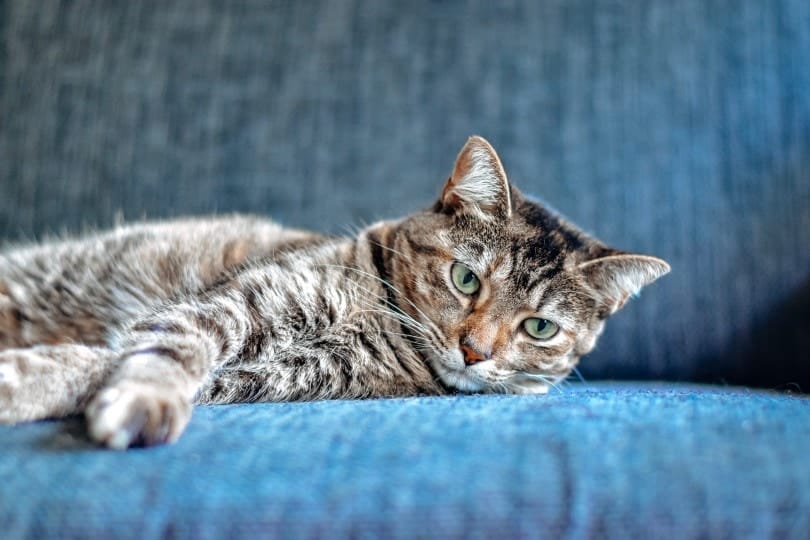
Signs Your Cat May Have Been Abused in the Past
Since you can’t ask your cat, these are some of the observations that people with previously abused cats have reported in their own pets:
- Inappropriate aggression toward people or other pets
- Dislike of a certain gender
- Tendency to hide when strangers are around
- Reactive to loud noises or new noises
- Hiding excessively
- Food aggression
- Excessive hissing or swatting behaviors
- Broken teeth, especially canines
- Previously broken bones
In general, there is no easy way to know for sure if your cat has or hasn’t been abused. However, most people suspect that cats that are more timid, hide from newcomers, or take longer to settle in, may have been more likely than outgoing cats to have a past history of abuse. Is this correct? No one knows for sure!
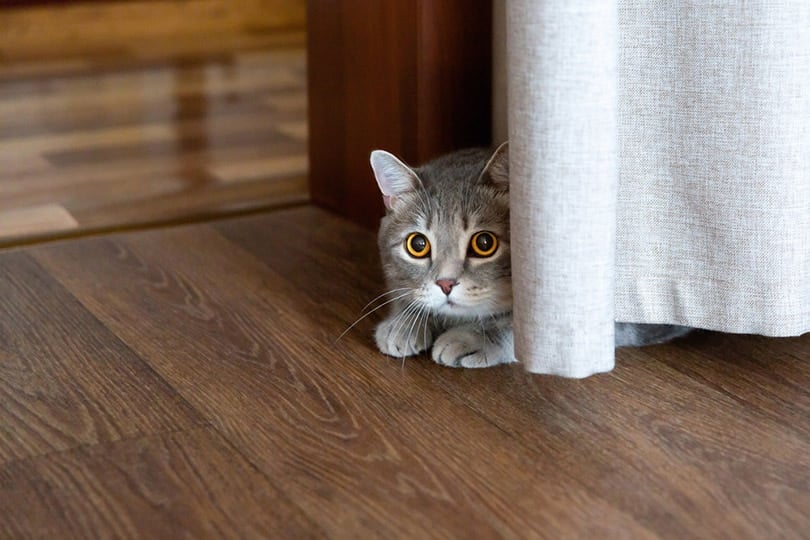
Other Changes in a Cat’s Life That May Cause Stress
If you do have concerns that your cat may have been abused, it is helpful to rule out any present issues that may be causing behavior changes. Any upset to a cat’s routine can cause cats to act differently, or to engage in odd behaviors. These are some of the more common changes in a cat household that can stress your cat out, who may then mimic past abuse:
- Change in sleeping pattern
- Hiding excessively
- Unusual vocalizing
- Not eating or other changes in appetite
- Excessive grooming
- Urinating or defecating outside the litter box
- Change in play behavior
- Inability to settle down
- Excessive requests for attention
- New aggressive behavior
- Biting excessively during play
- Biting at inappropriate times
- Attacking humans or other pets unprovoked
If you see any of these and have concerns, don’t hesitate to reach out to a veterinary professional for further help!
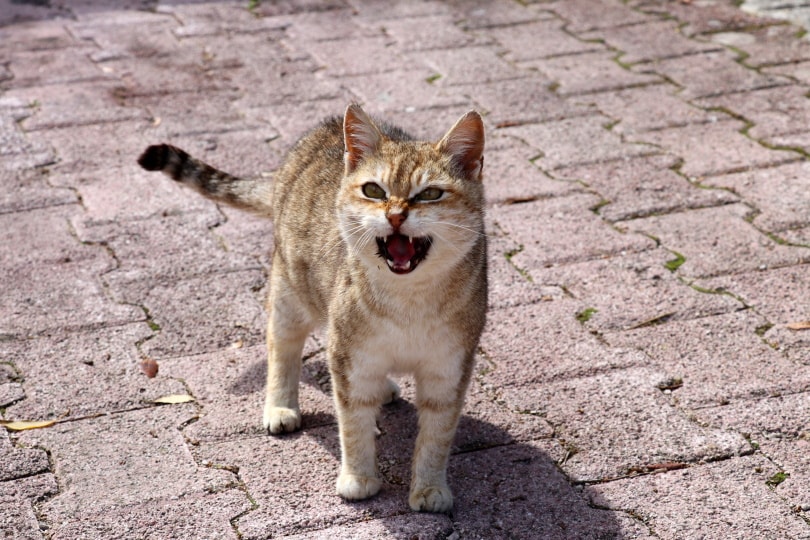
Treatment Options if You Think Your Cat May Have Been Abused in the Past
Treatment for past abuse can be problematic for many cat owners, mostly because most owners aren’t aware of the past abuse, only the present behaviors that it has caused.
Fortunately, feline medicine has made leaps and bounds of advancement in recent years concerning feline behavior therapies, so the options today are far greater than five or even ten years ago. This gives resourceful cat owners many different things to consider!
Behaviorists
Behavior, especially feline behavior, is a relative newcomer to the field of veterinary medicine. However, great veterinary behaviorists now exist in most parts of the world, many of whom will do remote consulting. This can include consults for many of the behaviors already mentioned, such as fear, inappropriate elimination, biting, and others.
Finding a behaviorist for your cat can involve filling out an online form that details your cat’s medical and behavioral history, along with your household information. Then, it will often involve a video call to discuss, in real-time, the occuring issues, and what treatment approaches may exist. Generally, a few follow-up appointments will be needed as well.
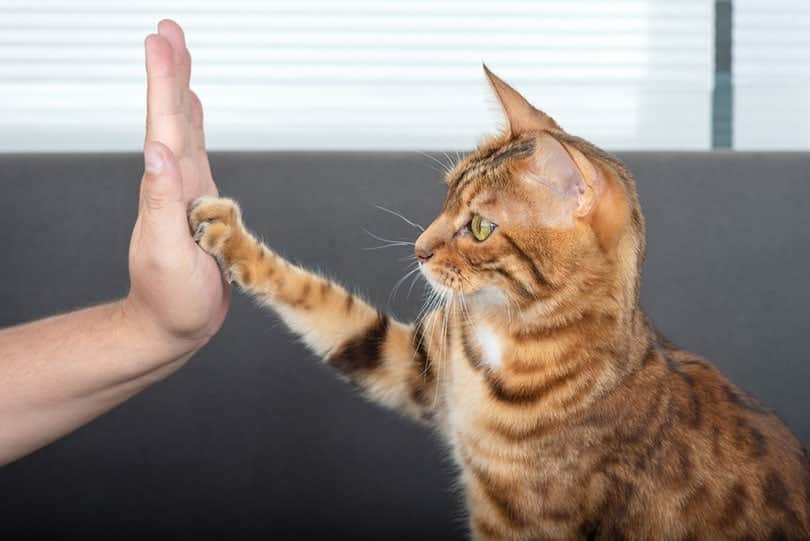
Nutritional Supplements
Nutrition has also taken on new roles in recent years, especially nutrition focused on behavioral science. New supplements are constantly arising, but some tried-and-true nutritional supplements that may help fearful or aggressive cats can include prescription diets (designed to calm cats), flower essences (that can help with feline behavior issues), and CBD oil for pets. Since nutritional supplements are not widely regulated, ensure you are purchasing from a trusted supplier, and that it is a product that is from a reputable company. Speak with your veterinarian if you have specific questions or need further recommendations.
Pheromone Diffusers
Pheromone diffusers have become quite popular in feline medicine in the last decade. You will often find these electrical socket plug-ins used at your vet clinic. However, they are also available for home use. The plug-ins release pheromones that mimic calming pheromones that cats naturally produce, which can help with behavioral issues, and reassure cats that the area of the plug-in is a safe zone! Many report good success with these diffusers.
Tips For Keeping Your Cat Safe
No one wants their cat to experience the trauma of abuse. Certainly, any steps that can be taken to avoid this from occurring are well worth the time spent. Consider the following as tips to help keep your cat safe from abuse:
- Consider keeping cats indoors when not supervised
- Keep cats indoors at night
- Ensure your cat is microchipped, so if they do get lost, it is easier to reunite with them
- Use only trusted pet sitters to look after your cat
- Keep a close eye on cats around certain holidays, such as Halloween; ideally, keep them indoors
Conclusion
Although we can’t definitively say that cats can remember abuse, they certainly can remember where food and water dishes are, what time they should be fed in the morning (even if you might disagree), and many other daily items in life. Therefore, it seems reasonable that strong emotional episodes, such as abuse, can likely impart lasting memories of some kind for our feline friends. Hopefully, your cat never has to experience anything along these lines, and only ever has to worry about why the food is a few minutes late in the morning!
See also:
Featured Image Credit: Piqsels

